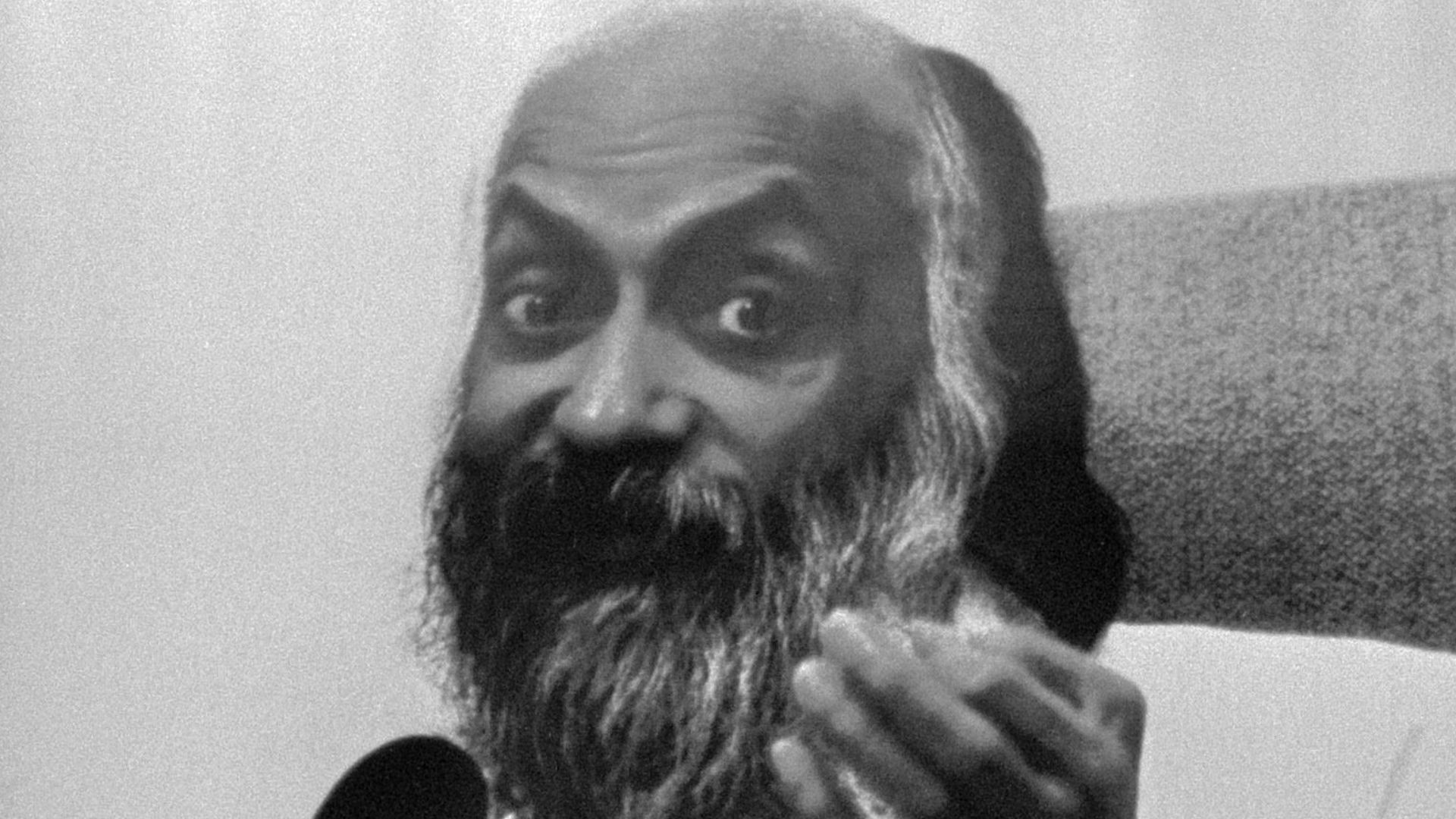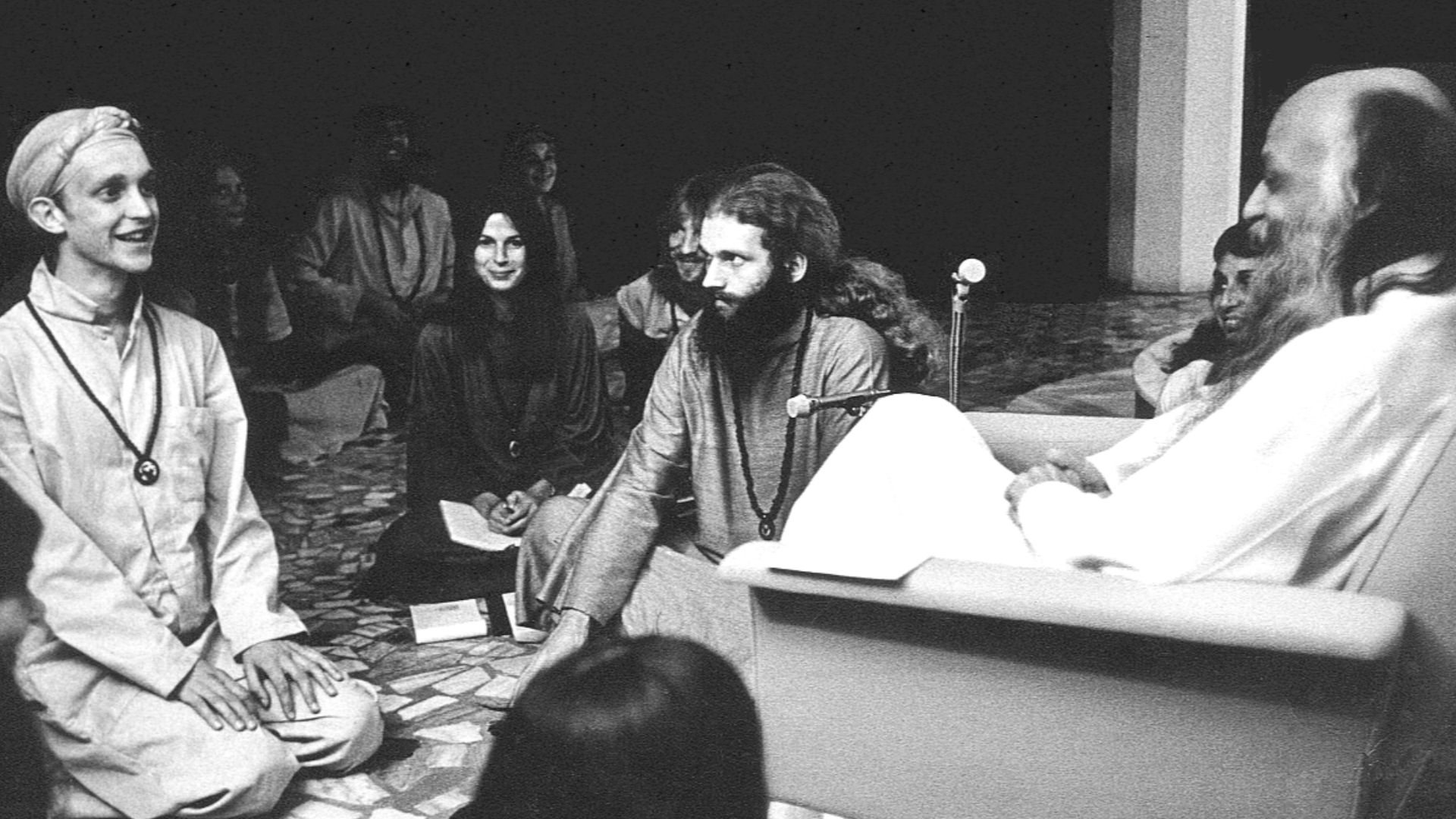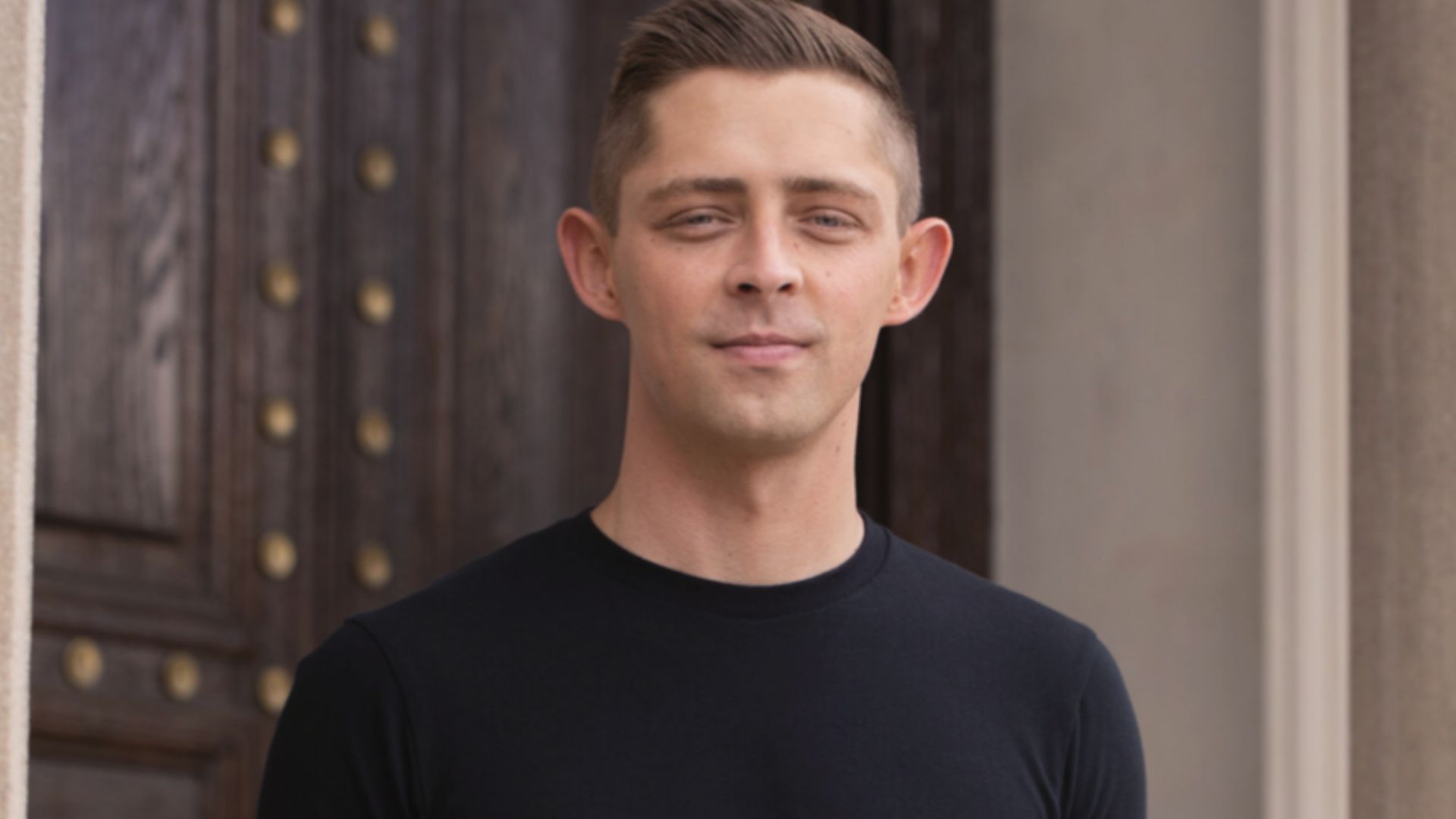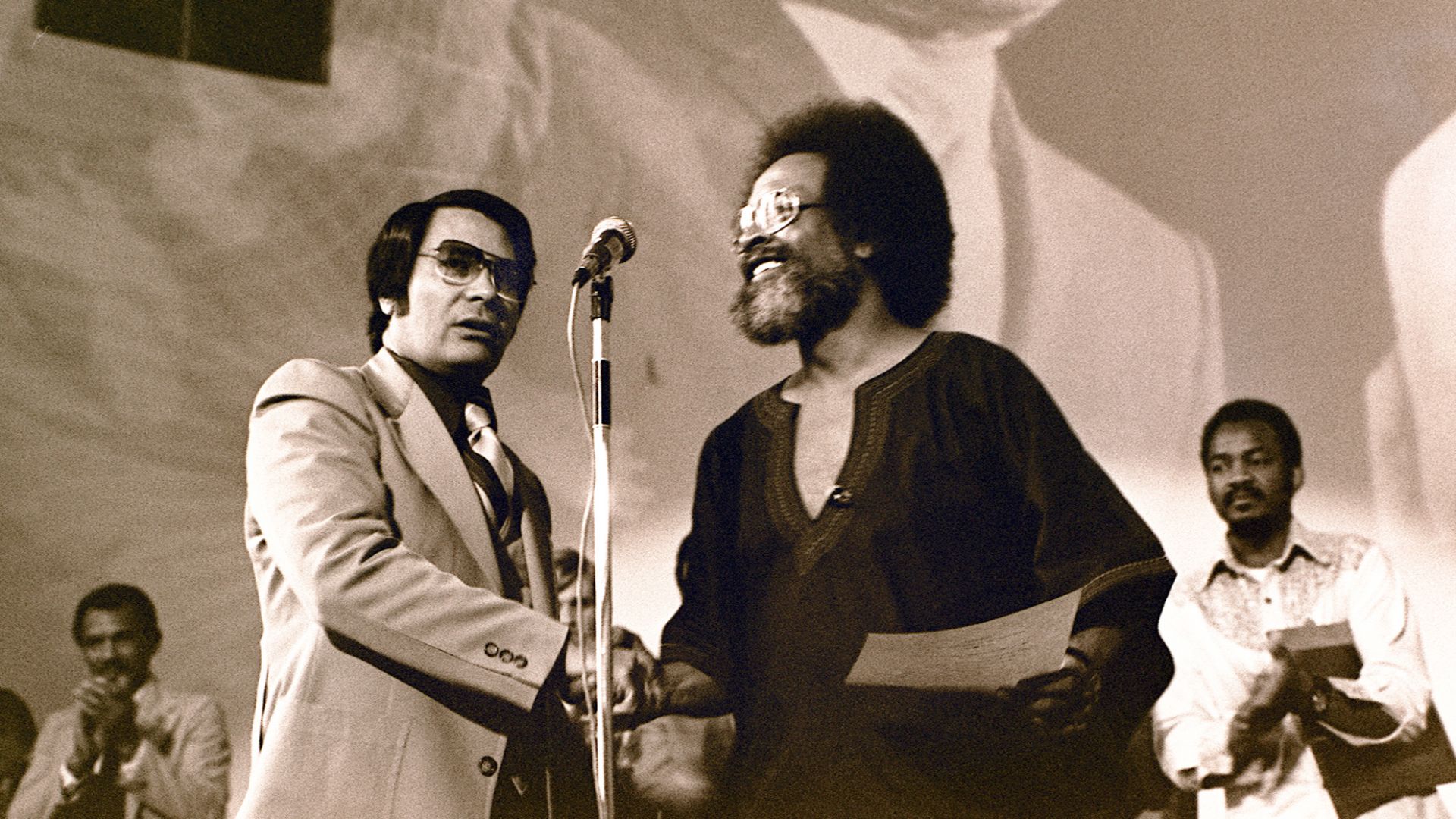This Is Where Psychology Wins
Some people radiate such confidence that it feels impossible to look away. Their charm slips easily into conversations, drawing others closer until admiration blurs into devotion. And what starts as simple influence slowly turns into control, fueled by subtle behaviors that shape belief and quietly secure power.

Absence Of Empathy
Behind the calm smiles and gentle words of a cult leader is often someone who doesn’t feel real empathy. Many show traits linked to antisocial or narcissistic personalities, where they pretend, and this makes it easy for them to manipulate others and see harm as something justified or even necessary.
 Sjakkelien Vollebregt, Wikimedia Commons
Sjakkelien Vollebregt, Wikimedia Commons
Chronic Paranoia
Convinced that enemies lurk beyond every door, cult leaders project suspicion onto outsiders and even their own followers. This mindset breeds an atmosphere of fear. By convincing members the outside world conspires against them, paranoid leaders strengthen their grip under the guise of protection.
Ruling Through Fear
Fear-based leadership is the silent engine driving loyalty within sects. Through a web of intimidation, these individuals persuade followers that leaving or disobeying invites disaster. Fear is reinforced with threats, even supernatural curses that promise eternal suffering.
Ruling Through Fear (Cont.)
Stories of ex-members meeting tragic fates circulate as cautionary tales, strengthening the illusion that safety exists only within the group. Over time, members internalize terror so deeply they police themselves, trapped by invisible psychological chains. Even though they are physically free, their minds remain captive.
 Ssunaronald, Wikimedia Commons
Ssunaronald, Wikimedia Commons
Projecting Moral Superiority
By claiming unique moral insight, these heads justify their authority above their followers. Even elaborate belief systems are built to sustain this illusion of righteousness. Within this framework, members are persuaded their mission is nobler than the outside world’s. Such a moral hierarchy validates the exclusion of outsiders.
 Gilad Kamer, Wikimedia Commons
Gilad Kamer, Wikimedia Commons
Engaging In Exploitive Behavior
Rooted in the dark triad of narcissism, Machiavellianism, and psychopathy, exploitive behavior drives these authoritarians to use followers as instruments for personal gain. Exploitation can take many forms, each justified as a “sacrifice” for the group’s greater purpose. Their well-being is irrelevant, as every act of exploitation strengthens the leader’s control.
 Sadmir Mustafic, Wikimedia Commons
Sadmir Mustafic, Wikimedia Commons
Practicing Isolation Tactics
Isolation tactics work by gradually cutting the threads that connect members to the outside world. Cult heads achieve this through physical separation and emotional manipulation. Ideological conditioning, too. Contact with family and friends is discouraged, under the pretext outsiders are “negative” or spiritually toxic.
 Redheylin (talk) (Uploads), Wikimedia Commons
Redheylin (talk) (Uploads), Wikimedia Commons
Practicing Isolation Tactics (Cont.)
Over time, followers begin to rely solely on the group for belonging. Everyday conversations become monitored and outside news reframed. Critical thinking is also replaced with collective belief. The resulting isolation forms an echo chamber, where followers lose the ability to engage beyond the group’s walls.
Emotional Manipulation
Sect heads expertly alternate between affection and rejection, using tactics like guilt-tripping and public shaming to maintain control. In moments of approval, followers feel chosen and valued; in moments of criticism, they spiral into shame, then desperation for acceptance. These emotional highs and lows foster deep dependency.
Persuasive Communication
Through practiced eloquence, cult heads make even irrational or extreme beliefs sound logical by weaving emotion and authority into every message. Their speech is carefully tailored to exploit hopes, insecurities, and fears to ensure their ideas resonate deeply with followers.
Persuasive Communication (Cont.)
This mastery of language not only recruits new members but also sustains unity within the group, binding individuals through shared conviction. And that is how persuasion becomes indoctrination, which replaces independent thought with absolute acceptance of the leader’s truth.
Intolerance For Dissent
These people demand absolute agreement, and they turn honest inquiry into a moral offense. Dissenting voices are portrayed as threats to harmony and truth, which ensures conformity through social and psychological pressure. This rejection of differing perspectives creates an environment where uniformity masquerades as unity.
Using Charisma As Manipulation
It starts with a smile, a promise, and a voice that seems to understand everything you’ve ever wanted—a potent blend of magnetism and psychological control. With disarming charm, they promise transformation and personal empowerment, subtly weaving dependence and obedience into their followers’s minds.
 Anthony Bologonese, Wikimedia Commons
Anthony Bologonese, Wikimedia Commons
Using Charisma As Manipulation (Cont.)
Followers, dazzled by confidence and eloquence, often dismiss warning signs and rationalize harmful behavior, even believing they’re part of a higher purpose. This builds loyalty so deep manipulation feels like mentorship. Beneath every radiant smile, however, lies a calculated performance designed to sustain power.
Exaggerated Victim Mentality
When manipulation hides behind martyrdom, the story always follows a script: the powerful cast themselves as victims of misunderstanding. Through exaggerated accounts of betrayal, they convert doubt into devotion. Criticism becomes prophecy fulfilled, and each act of resistance only strengthens their claim to moral superiority.
 MoreThanWordsbyAnil George, Wikimedia Commons
MoreThanWordsbyAnil George, Wikimedia Commons
Exaggerated Victim Mentality (Cont.)
This narrative draws followers into a shared sense of struggle, convincing them they’re part of a noble resistance. The ruler’s pain becomes the group’s rallying cry. In this self-made epic, empathy is weaponized, and the role of “victim” becomes the most powerful mask of all.
 Luke X. Martin, Wikimedia Commons
Luke X. Martin, Wikimedia Commons
Preaching Doomsday Prophecies
In the leader’s mind, every shift in the world confirms destiny. A natural disaster isn’t weather—it’s proof. Political change isn’t a coincidence—it’s a revelation. The fixation on impending doom becomes addictive, a cycle that keeps them—and everyone listening—trapped in a perpetual state of urgency.
Enforcing Black-And-White Thinking
A worldview reduced to extremes leaves no room for balance. Cult leaders cultivate this black-and-white thinking to divide existence into clear moral opposites—good versus evil, saved versus lost, chosen versus condemned, us versus them. By stripping away nuance, they make life appear linear.
Enforcing Black-And-White Thinking (Cont.)
Followers are drawn to the comfort of certainty. They’re taught to believe they alone stand on the side of truth. This rigid mindset leaves no room for nuance—diversity of thought becomes disloyalty. Within those narrow boundaries, loyalty deepens, and moral simplicity replaces genuine human understanding.
A Lack Of Accountability
Dodging responsibility becomes second nature. When things go wrong, they shift blame with practiced ease, recasting errors as lessons for others. Every failure finds a convenient scapegoat, while self-reflection vanishes behind the facade of someone who insists they’re never wrong.
Constructing A Grandiose Self-Image
Imagine stepping into a room where every word spoken seems divine truth and every glance carries the weight of destiny. That’s the power of a cult head’s self-image. Believing themselves uniquely chosen or enlightened, they radiate authority born of narcissistic conviction.
Constructing A Grandiose Self-Image (Cont.)
Besides, many rulers even declare themselves prophets or saviors, claiming extraordinary insight that sets them apart from ordinary humanity. In this carefully constructed hierarchy, their self-proclaimed greatness becomes both creed and weapon—sustaining power through reverence.
Authoritarian Control
Picture a world where every decision, belief, and emotion is policed under an invisible hand of authority. That’s the environment cult leaders create through authoritarian control. They dictate how followers dress, speak, think, and even love, using rigid rules, punishments, and conditional rewards to enforce obedience.
Authoritarian Control (Cont.)
Independent thought is labeled betrayal, and compliance becomes the only path to acceptance. Over time, members internalize control so deeply that freedom feels dangerous. Through this relentless supervision of relationships and routines, they maintain a chokehold on identity itself—ensuring loyalty through fear and dependence.























